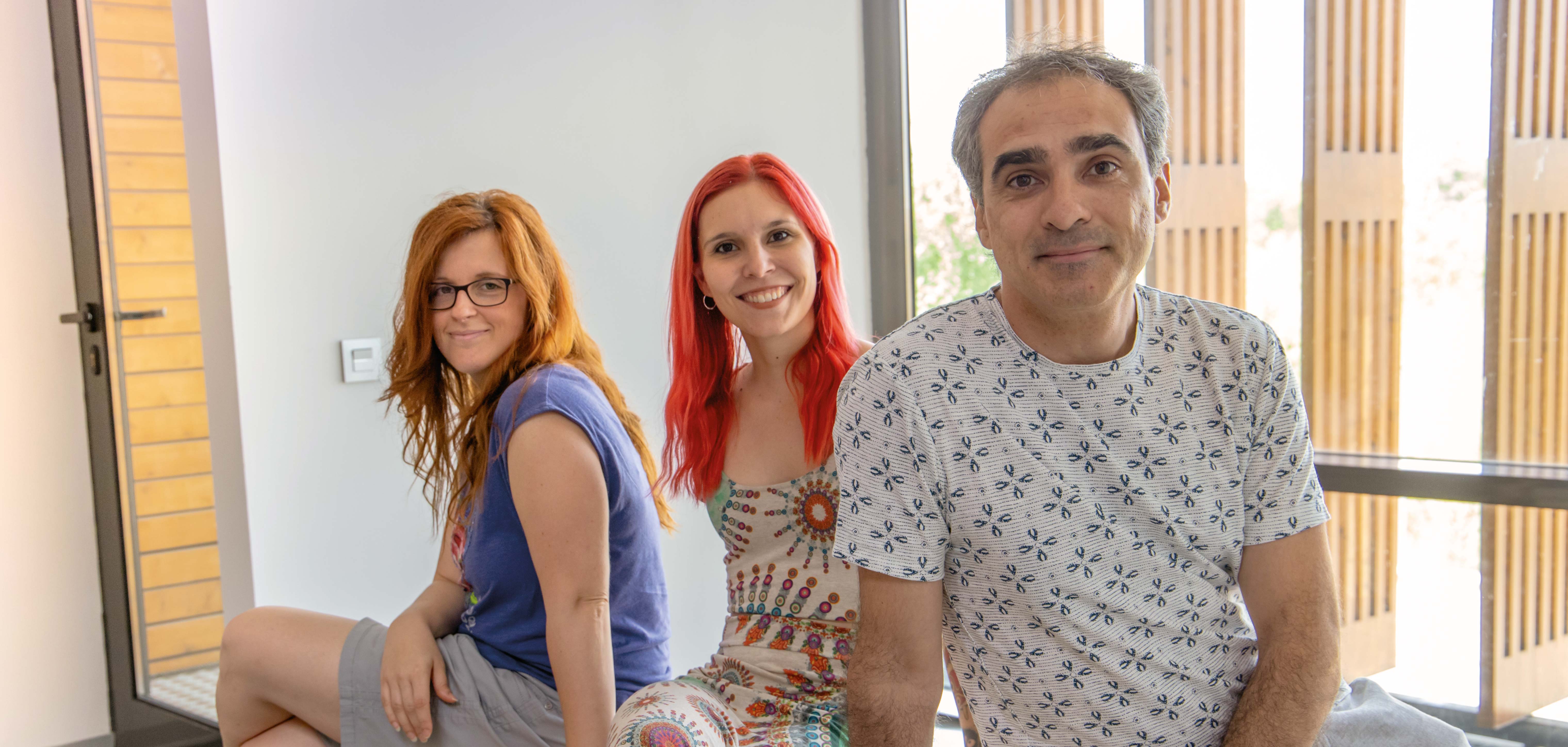Research Program. Precision Nutrition and Cancer
Computational Biology
Group leader: Dr. Enrique Carrillo de Santa Pau
Objectives: Our group aims to apply integrative computational analyses and to develop bioinformatics resources to study the nutrition-disease interactions through molecular variability responses. Complex analytical strategies are key for understanding the relationships between food, genes, environment and diseases and to develop precision nutrition strategies based on individual molecular background. The group is currently focused on four topics:
1. Metabolic Variability to study the complex molecular relationships between food/diet bioactive compounds and drugs interactions from structured and unstructured resources.
2. Microbiome-Host interaction for characterizing the microbiome disruption in complex diseases like colorectal cancer or celiac disease and study the effects of food bioactive compounds in microbiome modulation for a healthy gut and precision nutrition strategies.
3. Bioinformatic tools development to integrate and facilitate the analysis, visualization and interpretation of complex, heterogeneous and disperse molecular food datasets.
4. Citizen Science bringing the science and knowledge generated in our group closer to the people.
Dr. Enrique Carrillo de Santa Pau
Group leader of the Computational Biology Group
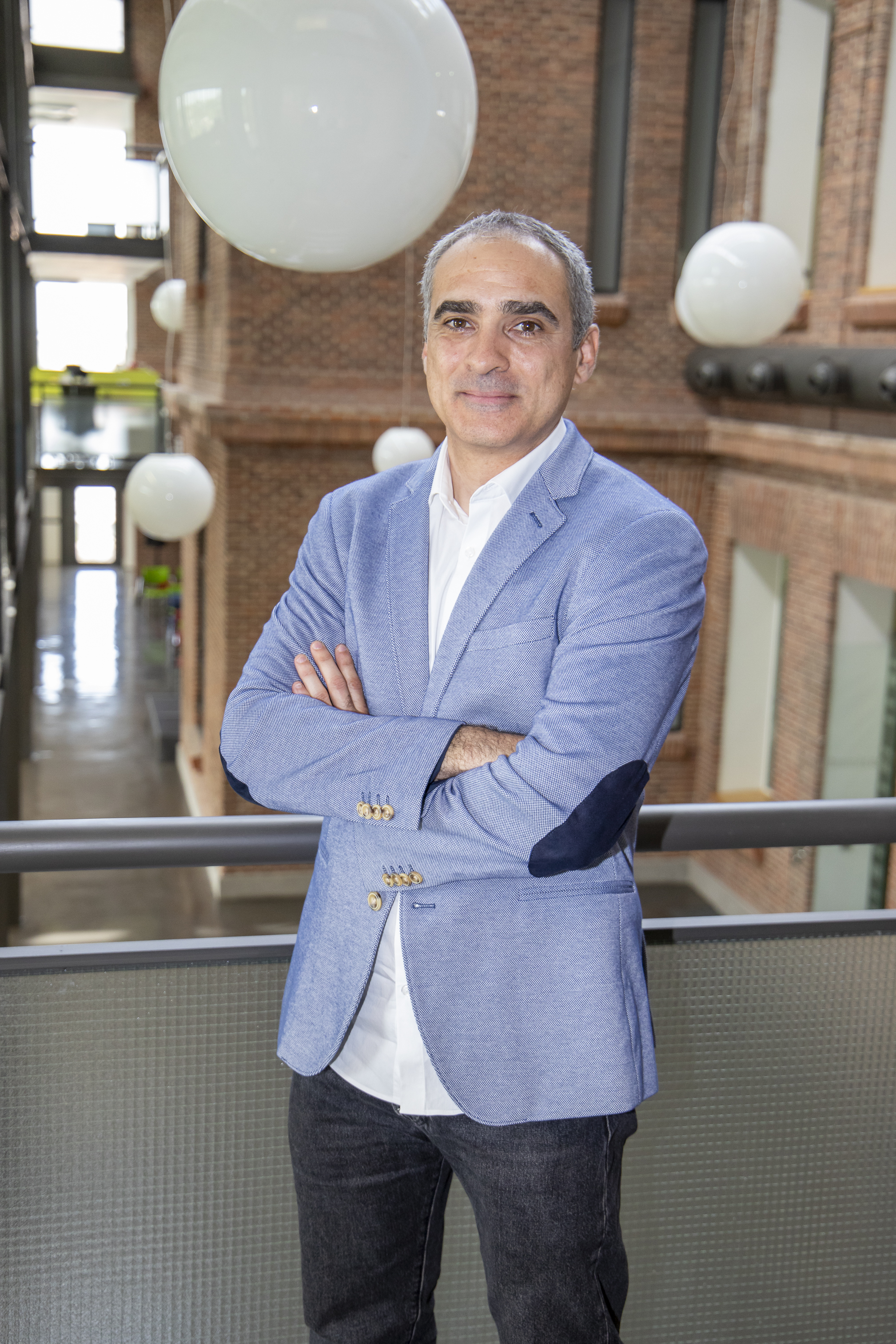 Dr. Enrique Carrillo de Santa Pau, obtained his Bachelor’s degree (BSc) at the “Complutense” University (Madrid) in 2002. He completed a PhD training program (2002-2007) in Biochemistry and Molecular Biology at “Ramón y Cajal” Hospital. In 2007, he moved at Primary Health Care Service in Madrid to study Diabetes Mellitus as part of MADIABETES. He got an MsC in Bioinformatics and Computational Biology (UCM, 2009). In 2010 he joined Dr. Stunnenberg’s group at Nijmegen Centre for Molecular Life Sciences (The Netherlands) to study the role of 5hmC from a genome wide perspective. In 2011, he moved at Spanish National Cancer Research Centre (CNIO) where he was responsible for the bioinformatic analyses at the Carcinogenesis Epithelial Group lead by Dr. F.X. Real. In addition, he participated in the analysis of large-scale ‘omic’ datasets from the EU high impact initiative: “BLUEPRINT of Haematopoietic Epigenomes”, within Dr. A. Valencia’s group. From April 2018 he joined IMDEA Food Institute to lead the Computational Biology Group.
Dr. Enrique Carrillo de Santa Pau, obtained his Bachelor’s degree (BSc) at the “Complutense” University (Madrid) in 2002. He completed a PhD training program (2002-2007) in Biochemistry and Molecular Biology at “Ramón y Cajal” Hospital. In 2007, he moved at Primary Health Care Service in Madrid to study Diabetes Mellitus as part of MADIABETES. He got an MsC in Bioinformatics and Computational Biology (UCM, 2009). In 2010 he joined Dr. Stunnenberg’s group at Nijmegen Centre for Molecular Life Sciences (The Netherlands) to study the role of 5hmC from a genome wide perspective. In 2011, he moved at Spanish National Cancer Research Centre (CNIO) where he was responsible for the bioinformatic analyses at the Carcinogenesis Epithelial Group lead by Dr. F.X. Real. In addition, he participated in the analysis of large-scale ‘omic’ datasets from the EU high impact initiative: “BLUEPRINT of Haematopoietic Epigenomes”, within Dr. A. Valencia’s group. From April 2018 he joined IMDEA Food Institute to lead the Computational Biology Group.
Email: enrique.carrillo@imdea.org
Phone: +34 91 727 81 00, ext. 304
Members
Laura Judith Marcos Zambrano
Postdoctoral researcher
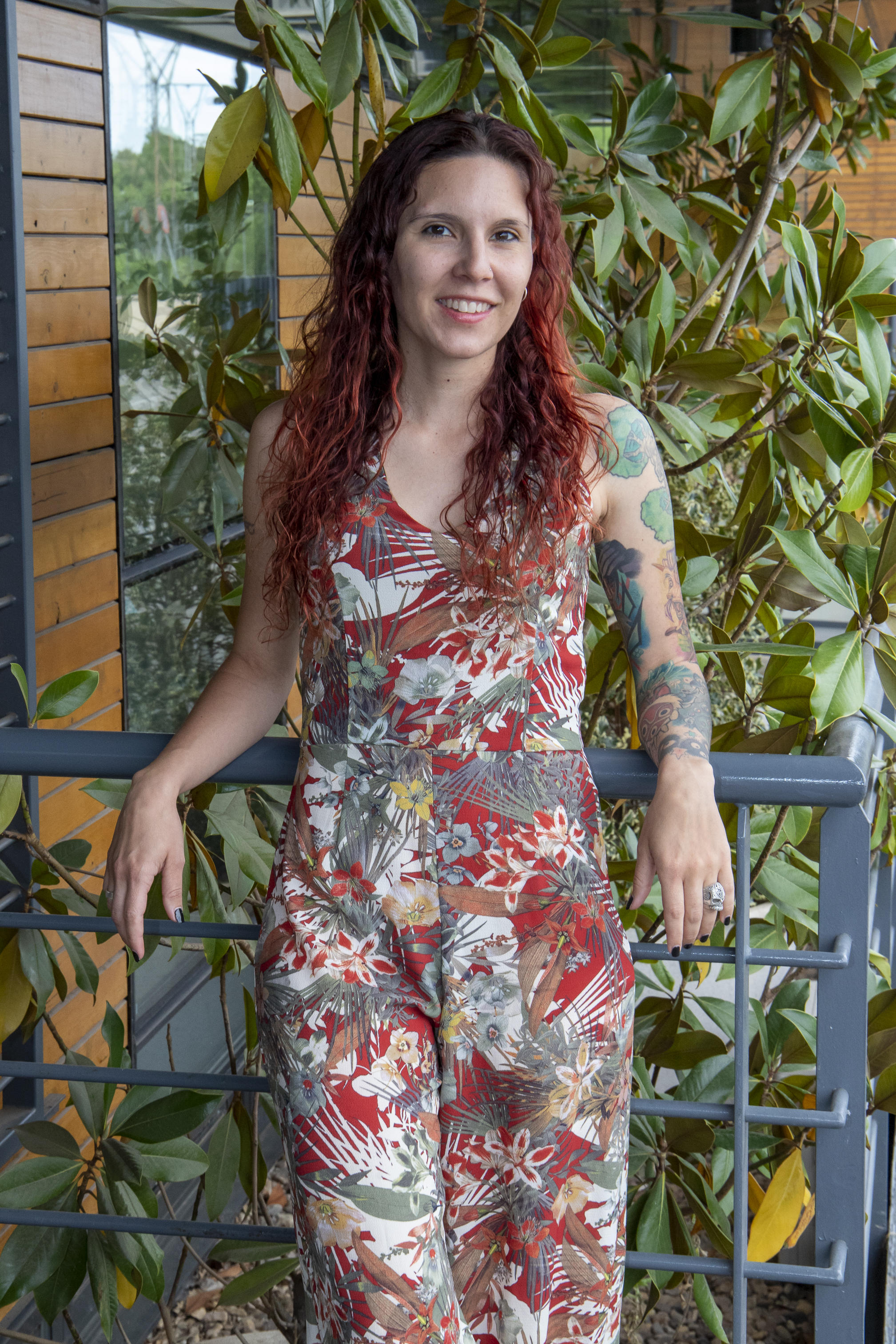 Dr. Laura Judith Marcos Zambrano is a bioanalyst specialized in clinical microbiology, bioinformatics, and metagenomics. She obtained her BSc in Bioanalysis at the Central University of Venezuela (UCV). She has a master degree in Cellular Signaling, she received her Ph.D. at the Universidad Complutense de Madrid in 2017, her doctoral investigations were carried out in Hospital Gregorio Marañon (FIB-HGM), and her work was focused on the characterization of yeasts causing fungemia: identification of species and antifungal susceptibility, molecular epidemiology, virulence factors, and molecular characterization of strains (genotyping). She has also worked in the invertebrate model of Galleria mellonella in a pre-doctoral stay at the Universitá degli Studi di Milano (Milan, Italy). She has been in an internship on the Bioinformatics Unit of the Hospital Ramón y Cajal (2019) and participated in the EMBO Practical Course of Microbial Metagenomics, held in the EMBL Heidelberg, Germany (2019). She joined the Computational Biology group at IMDEA Food in 2018 and currently has a Juan de la Cierva Incorporación Research Grant. Her research is focused on leading the area of microbiome modulation by bioactive compounds with 'in silico' developments for the prevention and treatment of complex diseases. She also participates in the COST Action CA18131 for the generation of 'Statistical and machine learning techniques in human microbiome studies' and takes part in the ESCMID Study Group for host and microbiota interaction (ESGHAMI). She is a member of "Initiative 11F", an organization that creates activities of the International Day of Women and Girls in Science and participates in divulgatory events to translate research to the community.
Dr. Laura Judith Marcos Zambrano is a bioanalyst specialized in clinical microbiology, bioinformatics, and metagenomics. She obtained her BSc in Bioanalysis at the Central University of Venezuela (UCV). She has a master degree in Cellular Signaling, she received her Ph.D. at the Universidad Complutense de Madrid in 2017, her doctoral investigations were carried out in Hospital Gregorio Marañon (FIB-HGM), and her work was focused on the characterization of yeasts causing fungemia: identification of species and antifungal susceptibility, molecular epidemiology, virulence factors, and molecular characterization of strains (genotyping). She has also worked in the invertebrate model of Galleria mellonella in a pre-doctoral stay at the Universitá degli Studi di Milano (Milan, Italy). She has been in an internship on the Bioinformatics Unit of the Hospital Ramón y Cajal (2019) and participated in the EMBO Practical Course of Microbial Metagenomics, held in the EMBL Heidelberg, Germany (2019). She joined the Computational Biology group at IMDEA Food in 2018 and currently has a Juan de la Cierva Incorporación Research Grant. Her research is focused on leading the area of microbiome modulation by bioactive compounds with 'in silico' developments for the prevention and treatment of complex diseases. She also participates in the COST Action CA18131 for the generation of 'Statistical and machine learning techniques in human microbiome studies' and takes part in the ESCMID Study Group for host and microbiota interaction (ESGHAMI). She is a member of "Initiative 11F", an organization that creates activities of the International Day of Women and Girls in Science and participates in divulgatory events to translate research to the community.
Email: judith.marcos@imdea.org
Phone: +34 91 727 81 00
Teresa Laguna Lobo
Postdoctoral researcher
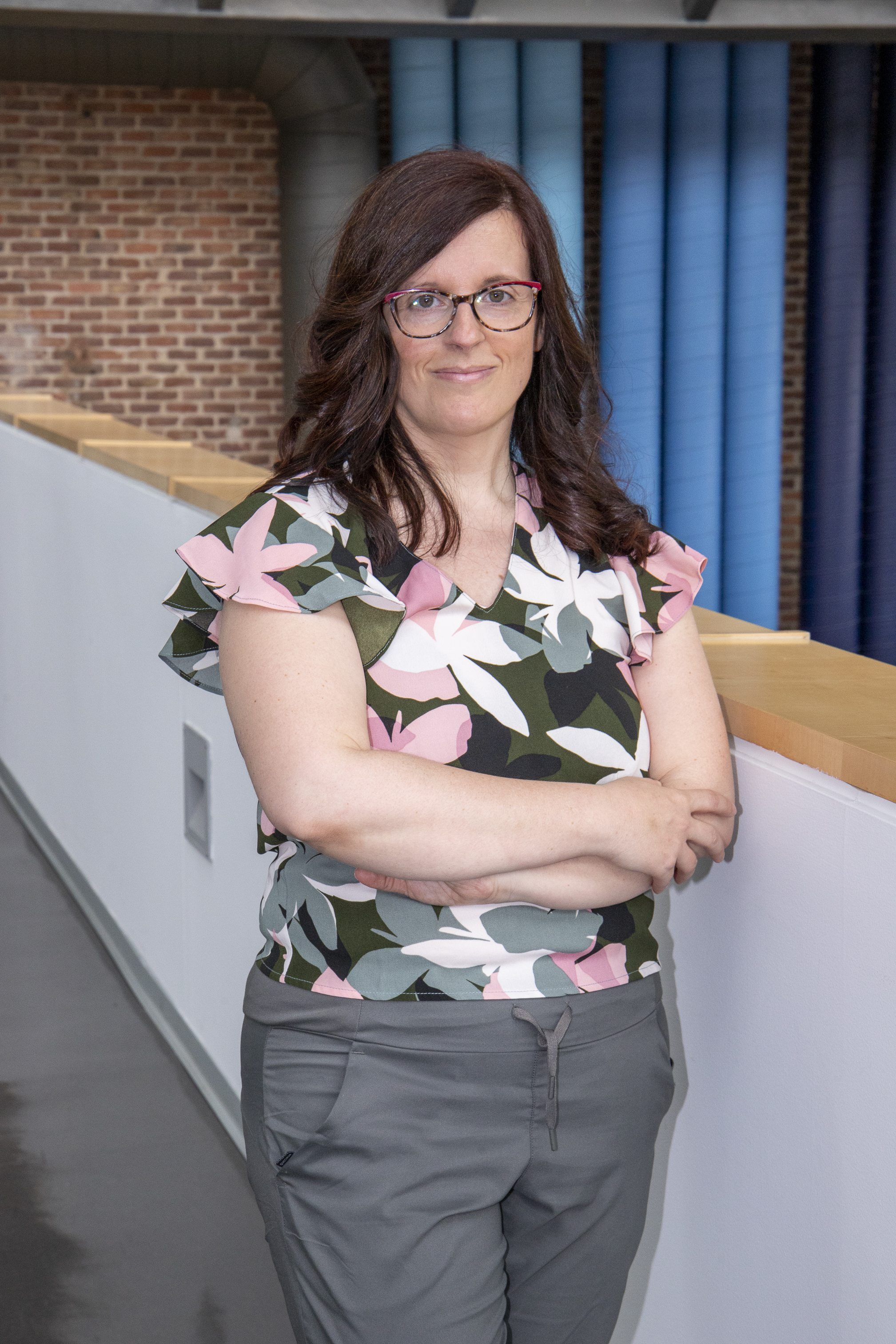 Dr. Teresa Laguna obtained her BSc in Biochemistry in 2005 and her PhD in Immunology in 2013 at the Complutense University of Madrid. In 2015 she finished a MSc in Omics Data Analysis at the University of Vic, when she carried out a project in finding relevant signatures in the different Neuroblastoma stages in the group of Dr. Manel Esteller at IDIBELL (Hospitalet de Llobregat). After finishing her MSc, she worked there in different projects in epigenomics analysis in cancer as a postdoctoral researcher. In 2016, she started as a postdoctoral bioinformatician at the Institute of Molecular Biology in Mainz (Germany) where she participated in proteomics pipeline development and data analysis, and leaded the bioinformatic efforts in gene annotation improvement in vertebrate species by integration of proteomics and RNA-seq data. In 2019, she moved to IMDEA where she is focused in applying human epi-genome inter-variability for effective personalized nutrition strategies.
Dr. Teresa Laguna obtained her BSc in Biochemistry in 2005 and her PhD in Immunology in 2013 at the Complutense University of Madrid. In 2015 she finished a MSc in Omics Data Analysis at the University of Vic, when she carried out a project in finding relevant signatures in the different Neuroblastoma stages in the group of Dr. Manel Esteller at IDIBELL (Hospitalet de Llobregat). After finishing her MSc, she worked there in different projects in epigenomics analysis in cancer as a postdoctoral researcher. In 2016, she started as a postdoctoral bioinformatician at the Institute of Molecular Biology in Mainz (Germany) where she participated in proteomics pipeline development and data analysis, and leaded the bioinformatic efforts in gene annotation improvement in vertebrate species by integration of proteomics and RNA-seq data. In 2019, she moved to IMDEA where she is focused in applying human epi-genome inter-variability for effective personalized nutrition strategies.
Email: teresa.laguna@imdea.org
Phone: +34 91 727 81 00
Blanca Lacruz
Predoctoral Researcher
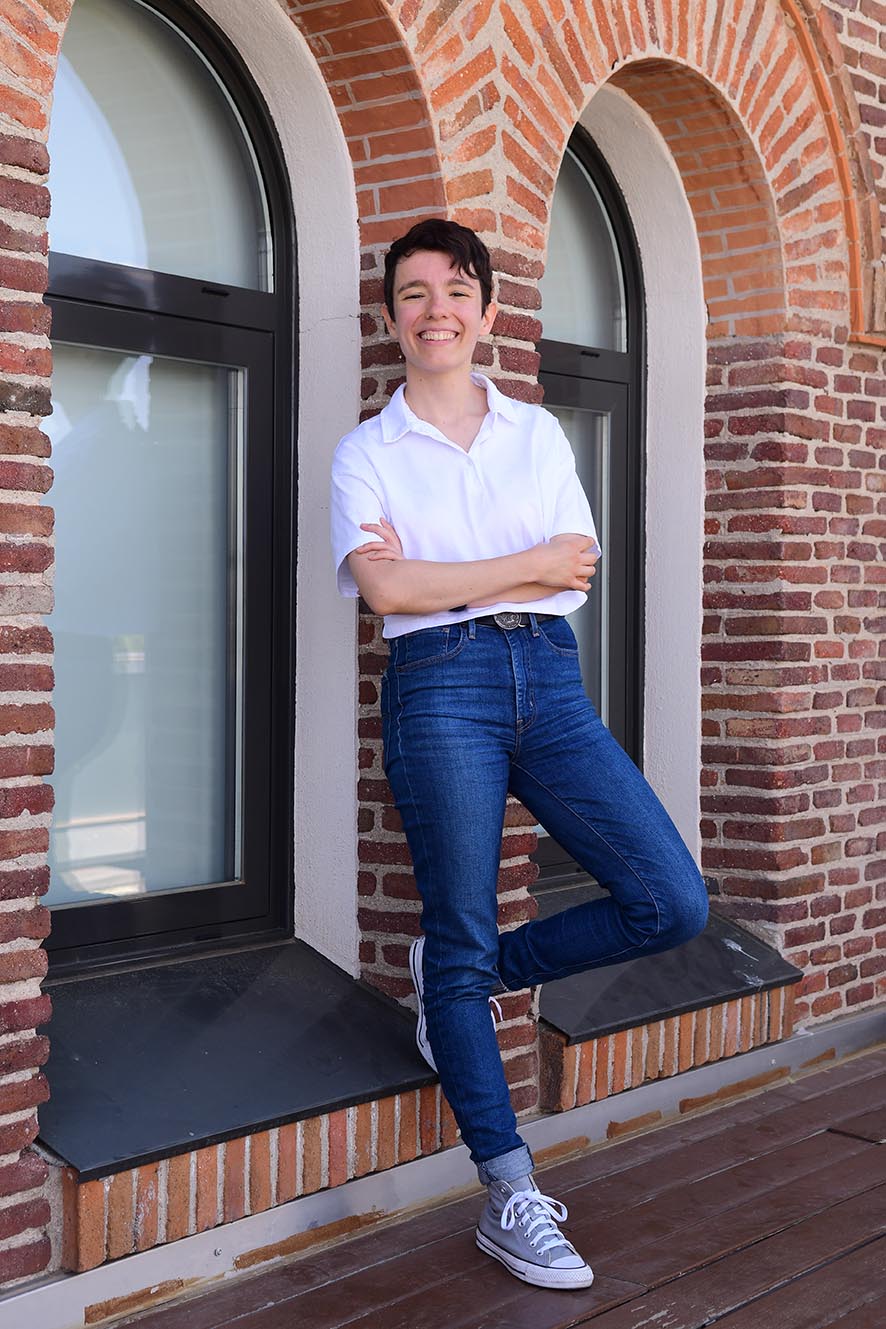 Blanca Lacruz Pleguezuelos obtained her Biochemistry Degree at Universidad Autónoma de Madrid (UAM) in 2020. During her degree, she had the opportunity to spend a semester at Boston University (BU) thanks to a scholarship funded by UAM and BU in 2018, and in 2019 she joined María Yáñez’s group at CBMSO for her Bachelor Thesis. In 2020 she started the Master Degree in Bioinformatics and Computational Biology at UAM, and in 2021 she joined the Computational Biology Group in IMDEA Food Institute for her Master Thesis on the influence of the gut microbiome on metabolically healthy obesity. As a predoctoral researcher, her research focuses on the application of computational techniques to understand the interactions between the gut microbiota and the host, under the supervision of Enrique Carrillo de Santa Pau and Laura Judith Marcos Zambrano. During her PhD, she has spent three months in the Cancer Research Center in Toulouse under the supervision of Vera Pancaldi thanks to a STSM Grant from the COST Action CA18131 ML4Microbiome.
Blanca Lacruz Pleguezuelos obtained her Biochemistry Degree at Universidad Autónoma de Madrid (UAM) in 2020. During her degree, she had the opportunity to spend a semester at Boston University (BU) thanks to a scholarship funded by UAM and BU in 2018, and in 2019 she joined María Yáñez’s group at CBMSO for her Bachelor Thesis. In 2020 she started the Master Degree in Bioinformatics and Computational Biology at UAM, and in 2021 she joined the Computational Biology Group in IMDEA Food Institute for her Master Thesis on the influence of the gut microbiome on metabolically healthy obesity. As a predoctoral researcher, her research focuses on the application of computational techniques to understand the interactions between the gut microbiota and the host, under the supervision of Enrique Carrillo de Santa Pau and Laura Judith Marcos Zambrano. During her PhD, she has spent three months in the Cancer Research Center in Toulouse under the supervision of Vera Pancaldi thanks to a STSM Grant from the COST Action CA18131 ML4Microbiome.
Email: blanca.lacruz@imdea.org
Phone: +34 91 727 81 00
Adrián Martín
Postdoctoral Researcher at Computational Biology Group

Adrian Martin obtained his Biochemistry Degree at Universidad Autonoma de Madrid (UAM) in 2011. The same year, he was awarded with La Caixa´s fellowship to pursue Master´s degree studies. He performed the Master in Biomedical Research at Universidad Pompeu Fabra in Barcelona between 2011 and 2012. He returned to Madrid in 2013, where he was awarded with a PhD fellowship FPU from the Education Ministry. He conducted his PhD studies between 2013 and 2017 in the Centro de Biologia Molecular (CBM) at UAM, under Dr. Carlos Dotti´s direction, working in insulin signaling in the hippocampus and its role in neuronal aging. In 2017 he obtained his PhD degree in Biochemistry at UAM and in 2018 he started a postdoctoral period at Dr. Ana Maria Cuervo´s laboratory in New York, working in the relationship between chaperone mediated autophagy (CMA) and the Parkinson´s neurodegenerative disease. In 2023 he was awarded with a Marie Curie Postdoctoral Fellowship from the European Commission to conduct studies related to aging and microbiome at IMDEA food institute.
Email: adrian.martin@alimentacion.imdea.org
Phone: +34 91 727 81 00
Students
Jacobo Solórzano Gómez
Marco Garranzo Asensio
Illaria Pace
Juliana Estefanía Arcila Galvis
| most relevant publications |
|
| main research grants |
|
Principal Investigator: Enrique Carrillo de Santa Pau ___________ Participant Investigator: Laura J. Marcos ___________ Participant Investigator: Enrique Carrillo de Santa Pau & Teresa Laguna ___________ Participant Investigator: Enrique Carrillo de Santa Pau ___________ Participant Investigator: Enrique Carrillo de Santa Pau & Laura J. Marcos ___________ Principal Investigator: Laura J. Marcos ___________ Principal Investigator: Laura J. Marcos ___________ Participant Investigator: Enrique Carrillo de Santa Pau ___________ Participant Investigator: Enrique Carrillo de Santa Pau ___________ |
